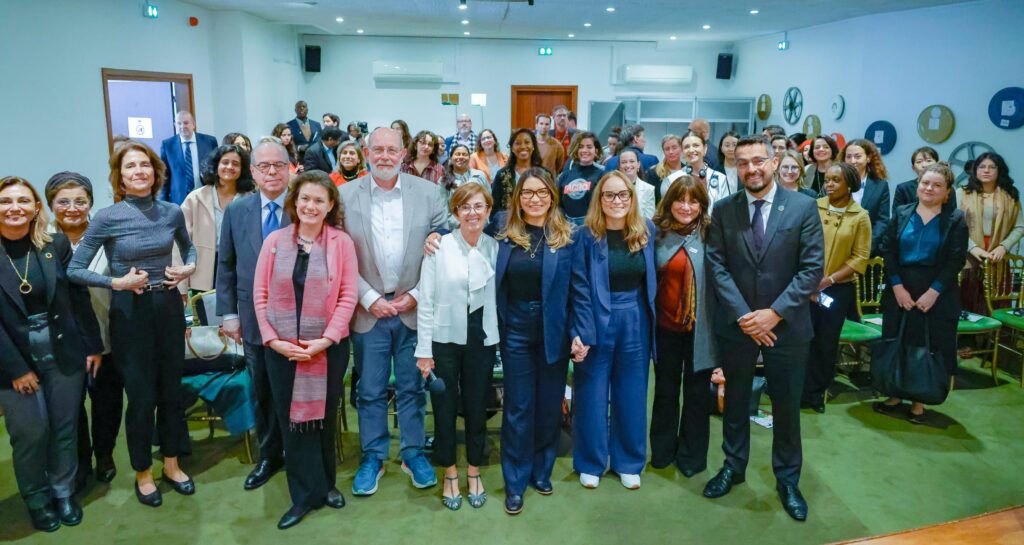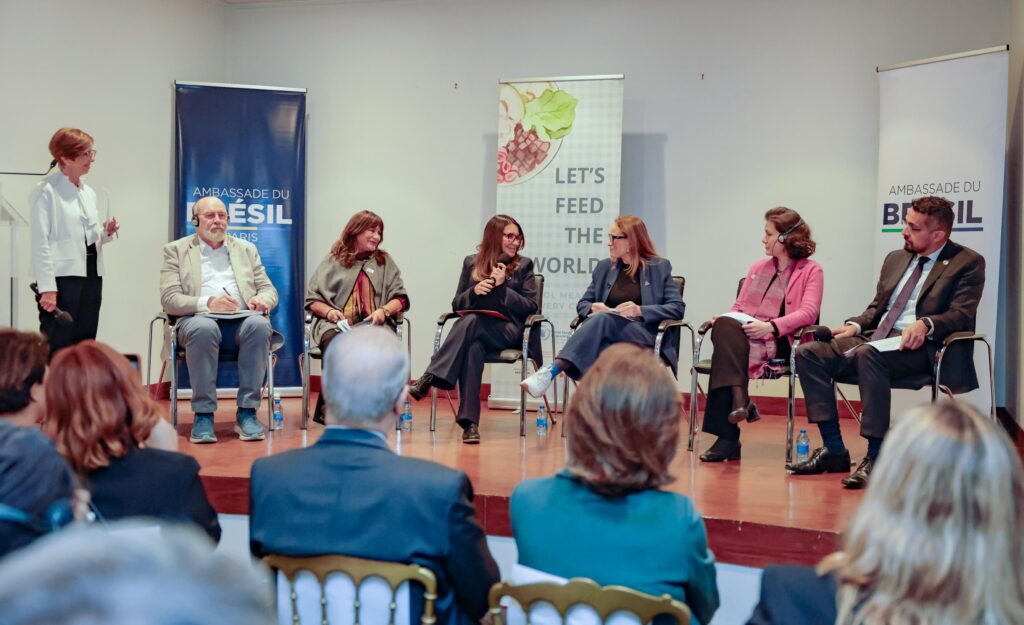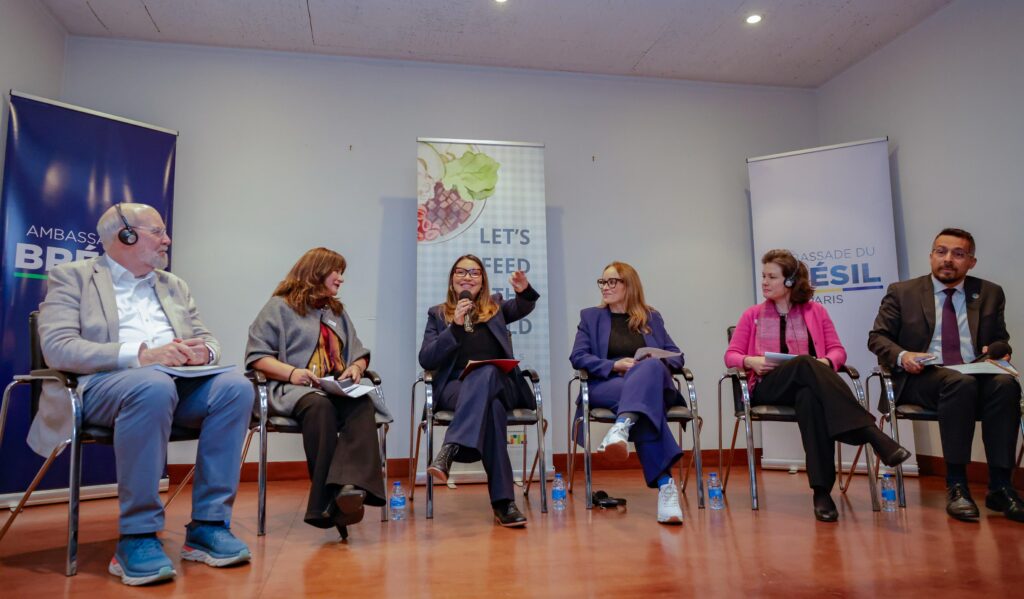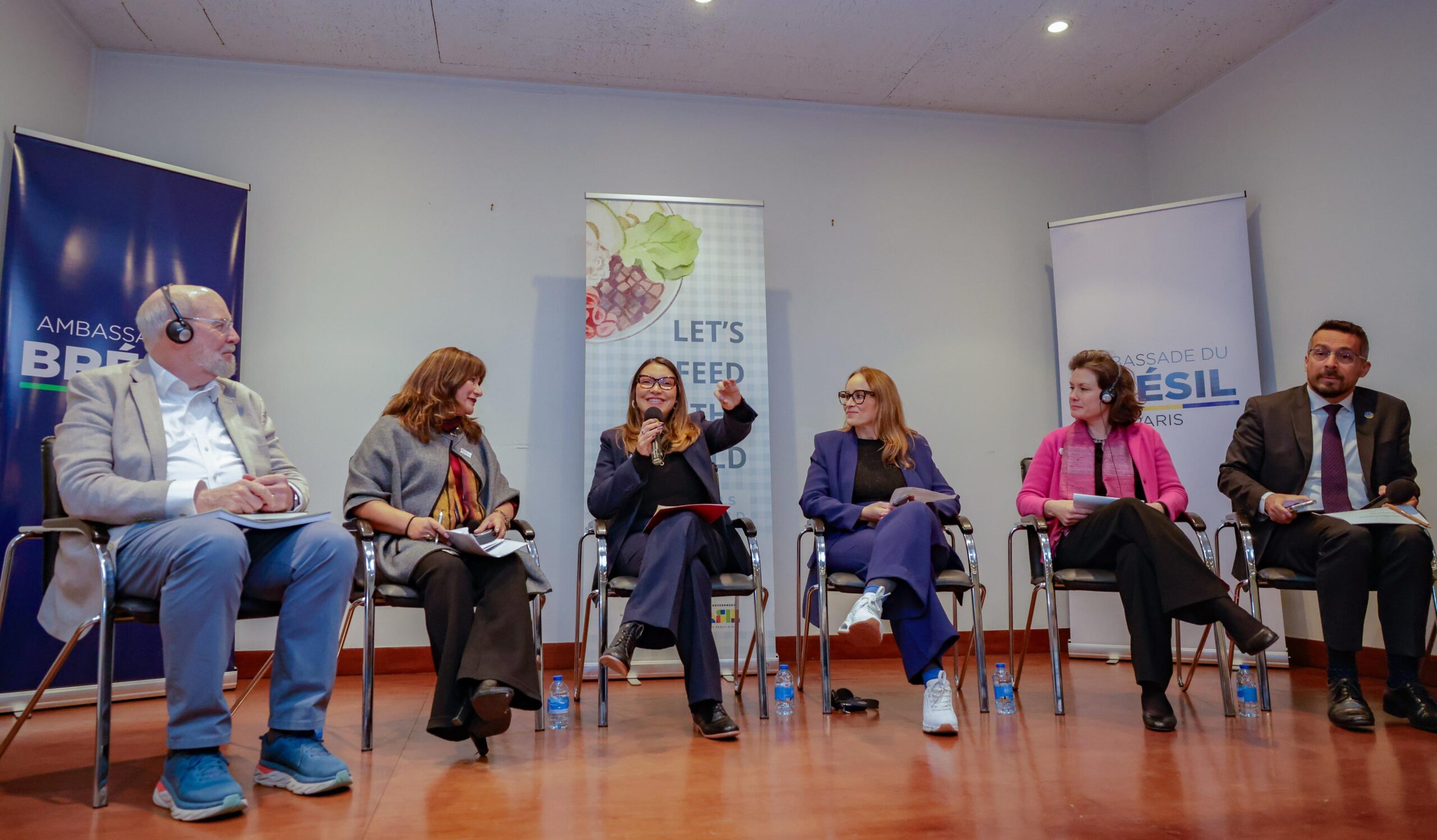The Network participated in international meetings reaffirming the role of school feeding as a transformative policy.
Brasília, Brazil, March 31, 2025 – The Sustainable School Feeding Network (RAES) took part in high-level international events in France from March 26 to 28. RAES participated in scientific panels, the Nutrition for Growth (N4G) Summit, and the parallel event organized by the governments of Brazil and France, titled “Uniting Global Efforts to Ensure Nutritious School Feeding Meals for Every Child”, hosted at the Embassy of Brazil in Paris.
RAES is jointly implemented by the National Fund for Educational Development (FNDE), the Brazilian Cooperation Agency (ABC), and the Food and Agriculture Organization of the United Nations (FAO). Najla Veloso, RAES Executive Secretary and Senior School Feeding Specialist at FAO, represented the Network at the meetings.
With the formal participation of 18 countries, RAES strengthened its global presence by participating in these events, highlighting the work carried out since 2009 in Latin America and the Caribbean, as well as the progress made by countries in the region in school feeding.

The N4G Summit brought together global leaders to align policies and resources for nutrition, aiming to place healthy eating at the center of sustainable development agendas. Meanwhile, the parallel event in Paris gathered representatives from the Brazilian government, international organizations, and experts to discuss the progress and challenges of school feeding as a tool for global food and nutrition security.
Brazil’s First Lady, Janja Lula da Silva, Ambassador for School Feeding in Brazil, highlighted the strategic role of school feeding programmes in the economic and social transformation of women and communities. “Talking about school feeding is talking about the economy. In Brazil, we have strengthened the connection between family farming and school feeding, which sets us apart globally”, she stated.
Debates and discussions on school feeding
The panel discussion, moderated by Cecília Malaguti, General Coordinator for Trilateral Technical Cooperation with International Organizations at ABC, featured: Fernanda Pacobahyba, President of FNDE; Najla Veloso, representing RAES; Emilie Sidaner, Coordinator of the Secretariat of the School Meals Coalition; Professor Donald Bundy, Director of the Research Consortium for School Health and Nutrition; Minister Saulo Ceolin, Coordinator of Food and Nutrition Security at the Brazilian Ministry of Foreign Affairs.
Fernanda Pacobahyba highlighted the evolution of Brazil’s National School Feeding Programme (PNAE), mentioning the legal framework that requires at least 30% of the programme’s food purchases to come directly from family farming. She also noted other achievements: “We have taken a huge step in restricting ultra-processed foods, reducing their share to 15% and aiming for 10% next year. Brazil has a strong track record in building public policies that ensure not only school feeding but also human and social development”, she stated.

Najla Veloso emphasized the importance of RAES as a reference in Latin America and the Caribbean, stressing that Brazil does not seek to be a model but rather a partner in the collective construction of solutions. She also underscored FAO’s crucial role in the region. “This support is fundamental to strengthening school feeding programmes”, she said.
Donald Bundy, from the Research Consortium for School Health and Nutrition, reinforced the importance of regional and sub-regional networks in building global tools and solutions. “RAES is an example of how regional networks can influence policies and practices on a global scale through the exchange of experiences among different networks”, he stated.
Meanwhile, Saulo Ceolin highlighted the synergy between the Global Alliance Against Hunger and Poverty, launched during Brazil’s G20 presidency, and school feeding programmes, which are among the main initiatives suggested in the policy package established by the Alliance. “For every dollar invested, we see at least a tenfold return in terms of economy, health, and quality of life”, he said.

The School Meals Coalition emphasized the impact of Brazil’s participation in this global initiative. “Nutrition and healthy diets are at the heart of the debate. The African Union, for example, has made significant progress on the school feeding agenda, and these global coalitions are essential to strengthening countries’ commitments”, explained Emilie Sidaner.
At the end of the event, ABC reaffirmed its commitment to international cooperation as a mechanism to ensure that every student has access to healthy and quality school meals.
Other Brazilian contributions
In addition to this panel, the Ministry of Development and Social Assistance, Family and Fight Against Hunger (MDS) organized another event at the Embassy of Brazil in Paris, titled “Food Systems, Climate Change, and Food and Nutrition Security: Challenges and Solutions”.
The Brazilian government also participated in the session “Maximizing the Nutritional Impact of School Feeding Programmes”. This meeting brought together experts and government representatives to discuss the impact of school nutrition and the development of evidence-based guidelines for school feeding programs. During the event, Karine Santos, General Coordinator of PNAE at FNDE, presented the Brazilian programme and called for investments to support governments in adopting nutritional standards for school meals and in building healthy food environments.







